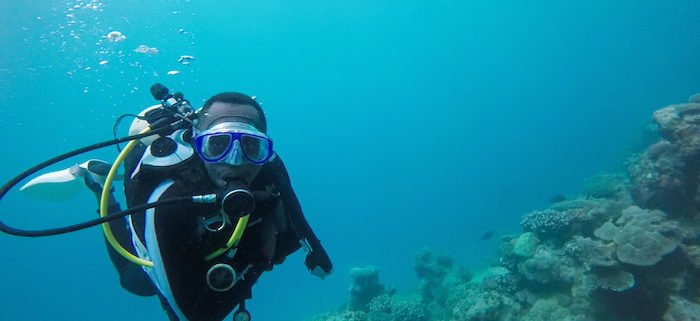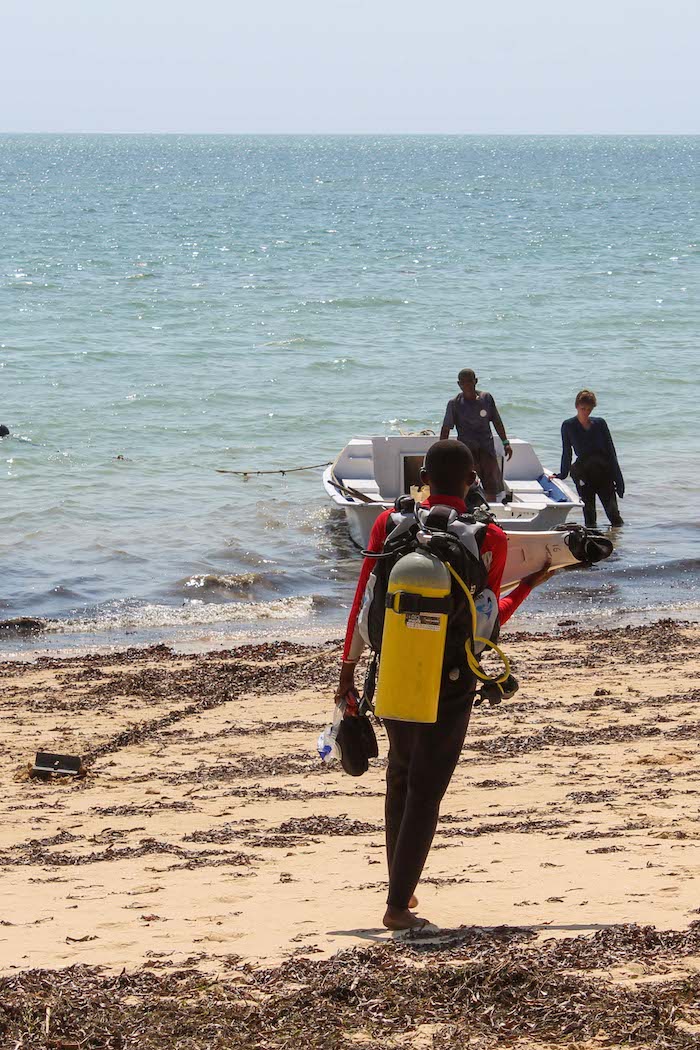Volunteer Interview: Jean Fernando Randriamiajason
Throughout the year, Reef Doctor welcomes volunteers and interns from all over the world. From time to time, some young Malagasy people come and join us to volunteer for a couple of weeks or months. Recently, a young Malagasy student joined us as a volunteer for 3 months. He is originally from the North of Madagascar but is currently studying in Costa Rica. As all volunteers who join us for an expedition, Jean Fernando has quickly become an essential member of the team.
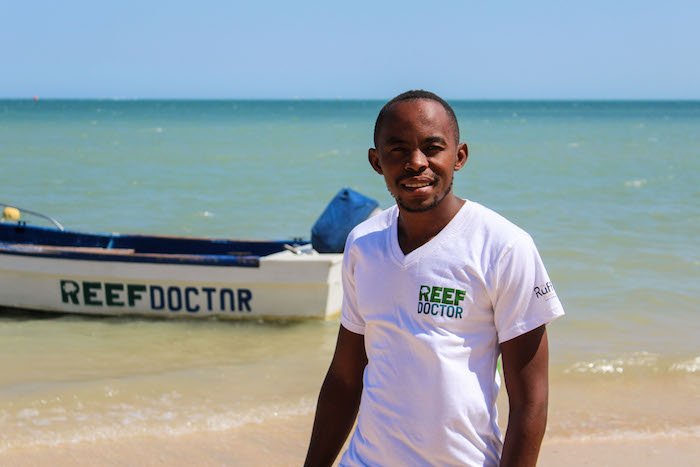
Name: Jean Fernando Randriamiajason
Age: 26
Position: Student and Research Assistant at Reef Doctor
- What motivated you to join Reef Doctor as an intern? How did you find this internship and why did you choose Reef Doctor?
First of all, in 2014, I did an internship with Blue Ventures in the Southern Madagascar area. I joined the education program at Blue Ventures and we went different places in the Bay of Ranobe. I saw there was a lack of things, such as education, and also a lot of opportunity in the area and I wanted to make a difference. I am passionate about the environment, both marine and terrestrial, and I feel that we need to give the people the tools to protect their home, their natural resources.
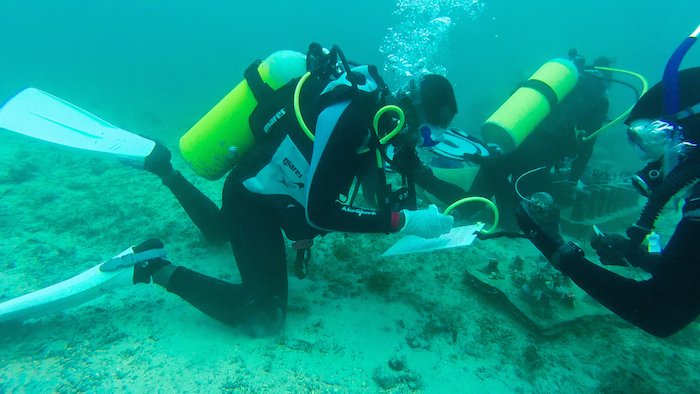 What made me come to Reef Doctor is that I saw they were working on a coral transplantation project and showing the communities how to fish sustainably. Showing how this can be feasible in, and beneficial to, the community. As an environmentalist, I wanted to see the connection between the farmers or fishers and their resources, how the connection can help both sides. In addition, the coral is very important for recycling and cleaning the fish habitat and I wanted to gain more experience in the field.
What made me come to Reef Doctor is that I saw they were working on a coral transplantation project and showing the communities how to fish sustainably. Showing how this can be feasible in, and beneficial to, the community. As an environmentalist, I wanted to see the connection between the farmers or fishers and their resources, how the connection can help both sides. In addition, the coral is very important for recycling and cleaning the fish habitat and I wanted to gain more experience in the field.
- What has been your volunteer or professional experience so far?
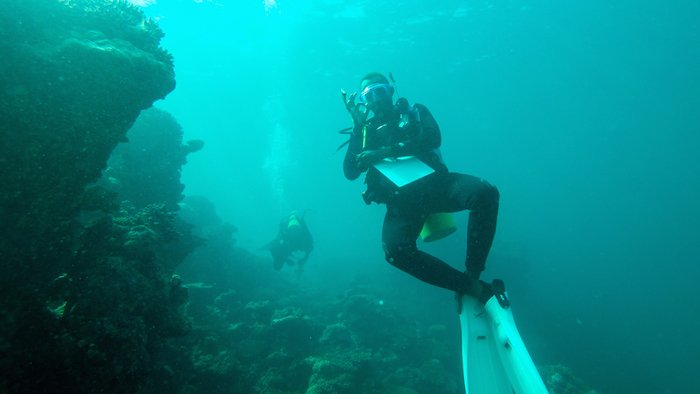
I did an internship with Blue Ventures in 2014. In 2013, I did an internship in the Bahamas in a Marine Ecology and Sustainable Agriculture program. In 2011 and 2012, I completed a research assistantship with a scientist from Virginia Tech University in terrestrial research in which they conducted carnivore research. Before that time, in Maroantsetra, I was in an environmental education club sponsored by the Wildlife Conservation Society.
- Where is home?
Maroantsetra, which is in northern Madagascar.
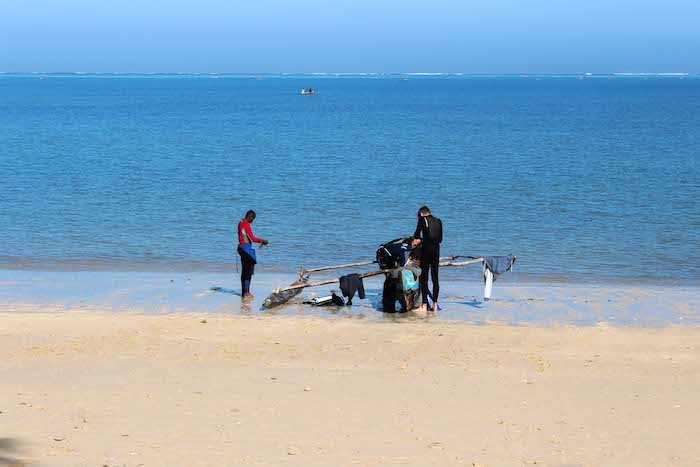
- What are you studying at university? Do you plan to continue your studies?
I am currently studying Agricultural Engineering and Natural Resources Management in Costa Rica. I will be awarded a License in December 2018 in that subject.
Yes, I plan to continue my studies. I want to move on to do my Master’s degree in Marine Biology research, but I am not sure where or how as yet.
- What are your hopes for Madagascar in general?
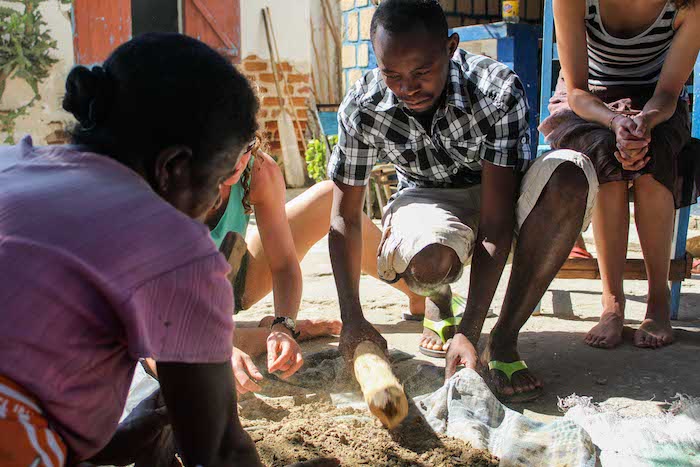
I think that someday Madagascar is going to be developed. I believe there are many educated people in my country and I hope that all of those educated people take action so that we develop and protect our environment and natural resources. I believe as well that the only way to do so is from the Malagasy people themselves. As I believe this will come from the young people, I am passionate about education and training people as to how to make it happen. There are a lot of challenges, but there is one thing that I’ve learned and that is to not give up.
- How will what you have learned at Reef Doctor and/or in university be applied in Madagascar?

At Reef Doctor, I have been interning in the Science Department. One project there is to try to find what type of coral can be easy to transplant and easy to grow. If all of the marine conservationists in Madagascar know how and which corals to transplant and grow, that knowledge from this Bay can be transferred all around the country.
Another project is looking at MPAs as a way to benefit the villagers. For example, the Rose Garden MPA area results in more and bigger fish throughout the bay. It would be good if we could create different marine protected areas around Madagascar, if feasible.
At university, there is a lot of knowledge that can be applied to Madagascar. We try to help these people by finding sustainable alternatives to using their natural resources and overfishing. We need to find proper agricultural systems to apply on the land, as there is lots of free land not being used. In university, we try to understand the different crops and types of compost and how to grow food. All can be applied in Madagascar.
- What new projects/initiatives have you started and how do they help the community?
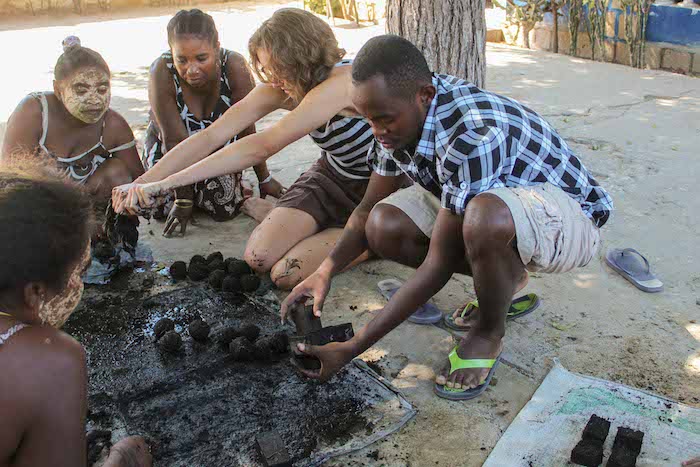
I started English training for the Malagasy staff at Reef Doctor. It helps the community because so many foreigners come here and work here, but if the staff cannot communicate with these foreigners, good ideas cannot be transferred between them. Knowledge transfer can help the community to develop, plus open staff minds in terms of development and certain ideas.
- What do you like best about interning at Reef Doctor? And what have you gained from your Reef Doctor experience?
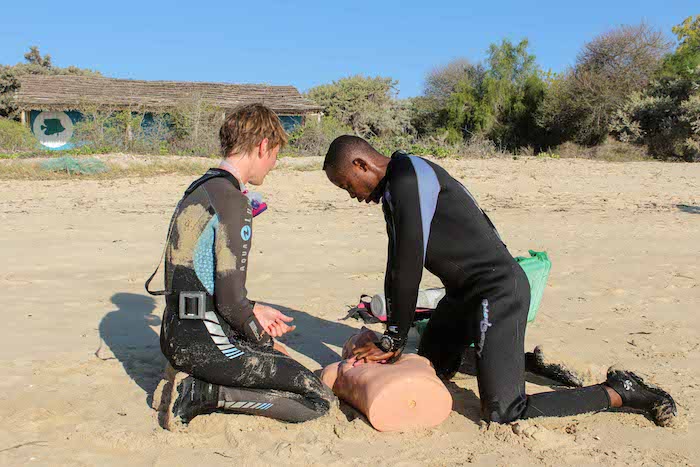
First, and most importantly, is sharing the experience with all of the people who come from around the world. Every one of us has specific skills and communicating with others helps me to develop my own knowledge and skills. Secondly, the underwater environment is amazing. Seeing the coral transplantation and fish makes me even more curious and interested in protecting the underwater environment.
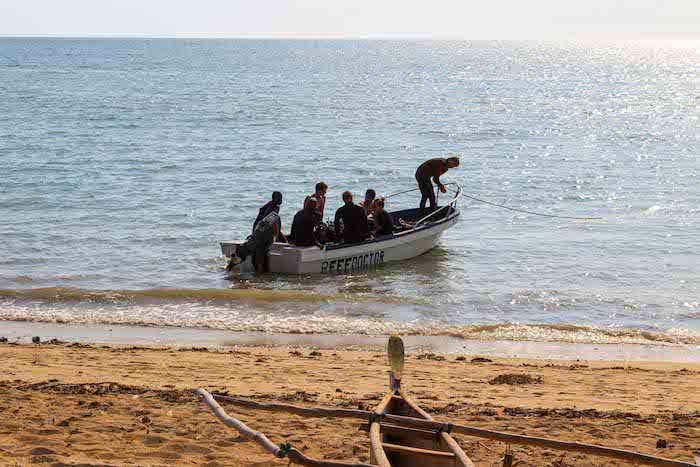 I have gained a lot of experience here. Now I know how to conduct surveys about fish, benthic, invertebrate and important indicator species. I understand the process and what the analysis shows us. For example, if the fish are decreasing, what is the negative impact for the community and how does that affect the conservation of the surroundings.
I have gained a lot of experience here. Now I know how to conduct surveys about fish, benthic, invertebrate and important indicator species. I understand the process and what the analysis shows us. For example, if the fish are decreasing, what is the negative impact for the community and how does that affect the conservation of the surroundings.
- What is your hope for Reef Doctor and/or how would you like to see it evolve and grow?
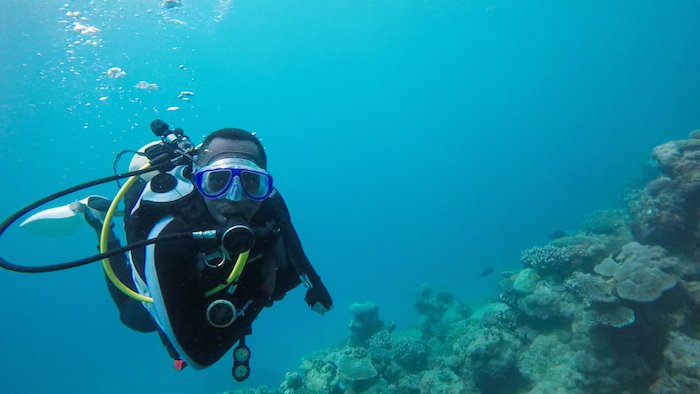
I hope someday that Malagasy people will run this organization and the local people will conduct the surveys here and do the analysis, in order to protect their own environment. I hope that there are more Malagasy people who gain their dive master so that the data collection and surveys will then continue.
- Where do you see yourself professionally in 5 years? In 10 years? What does the future hold for you?
For me, basically, I will be finishing my PhD in a marine conservation area. Ten years from now, I hope to be running my own conservation project. I need to create projects to employ the many uneducated people here in my country. If we can fund a project that can help these people, that will be so nice.
While I’m at Reef Doctor, sometimes I do my own research around the area to find other people who are passionate about conservation and understand if my conservation project ideas are applicable.
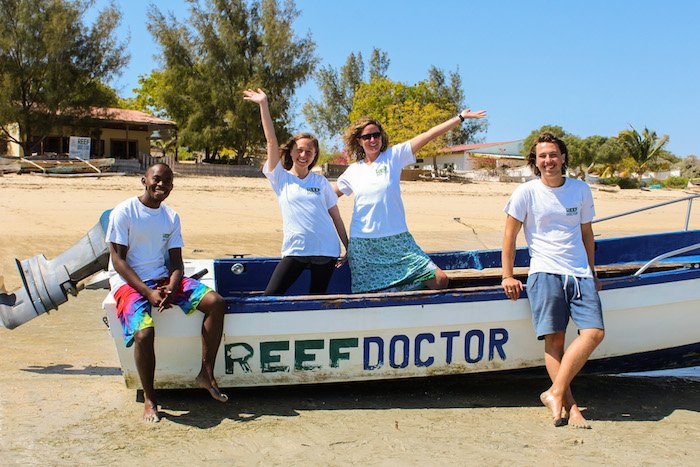
Interview by RD Comms Officer Karin Moehler
Photo credit: Jack Farley, Clara Nuber & Karin Moehler

